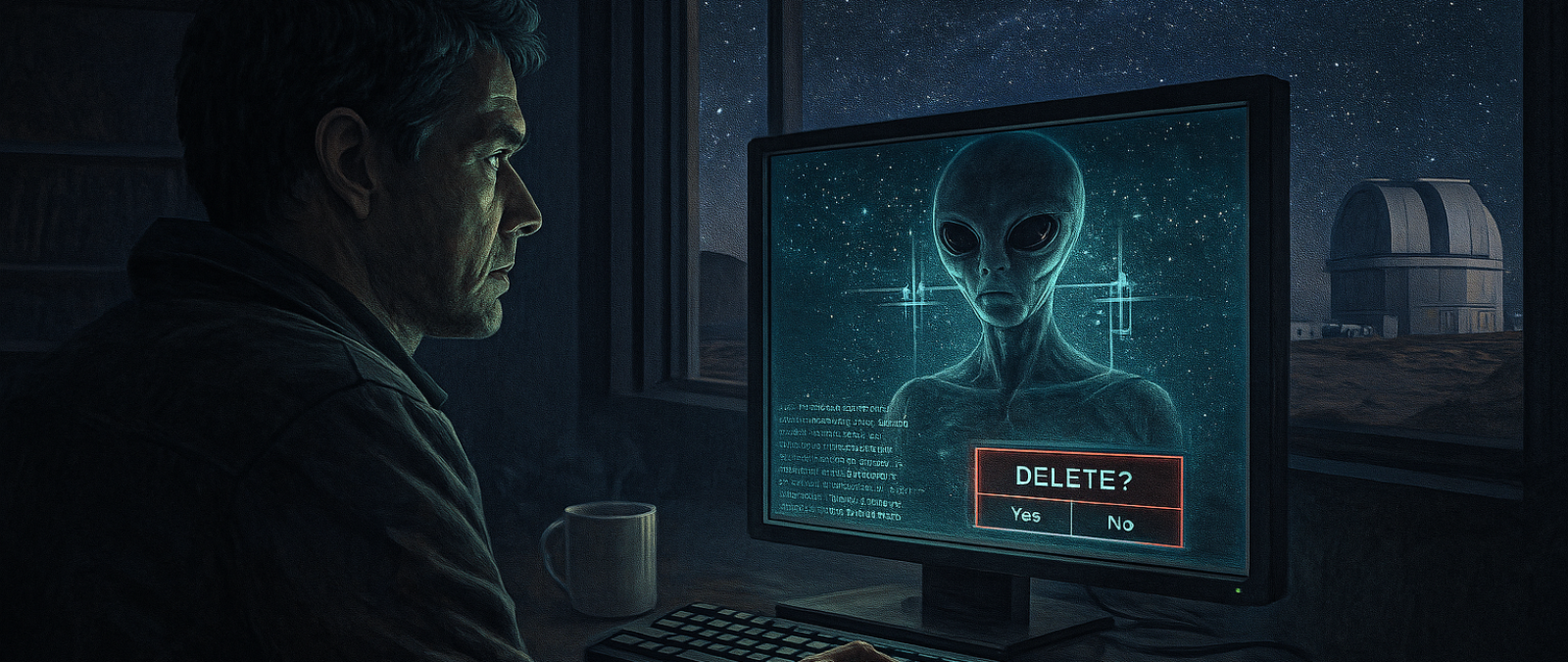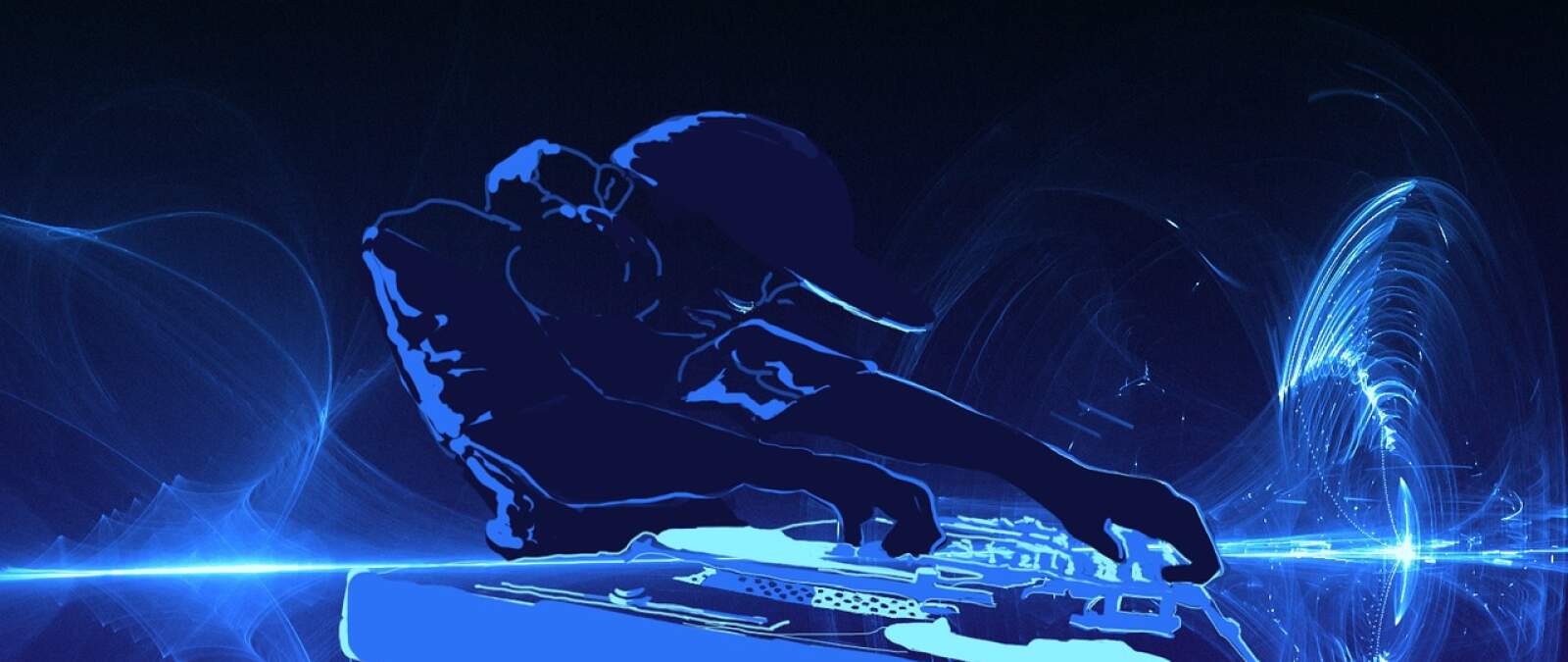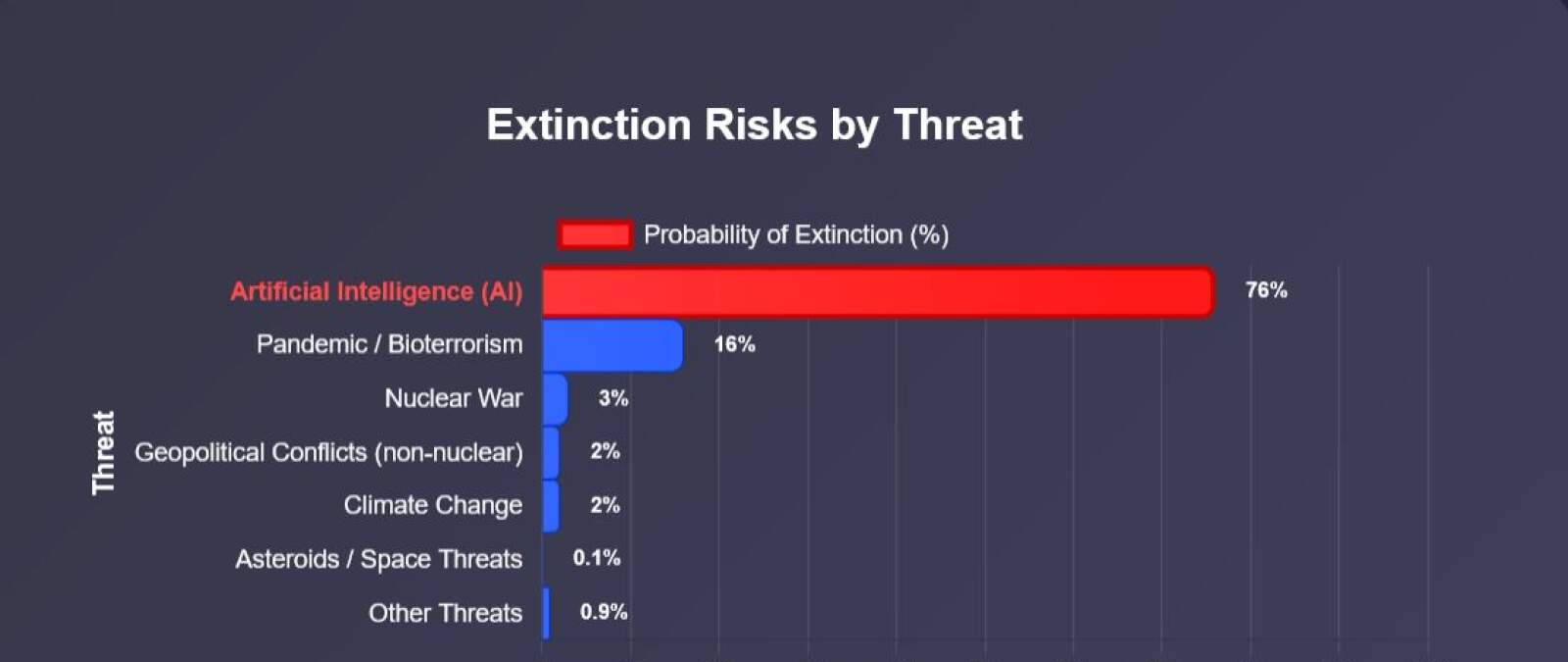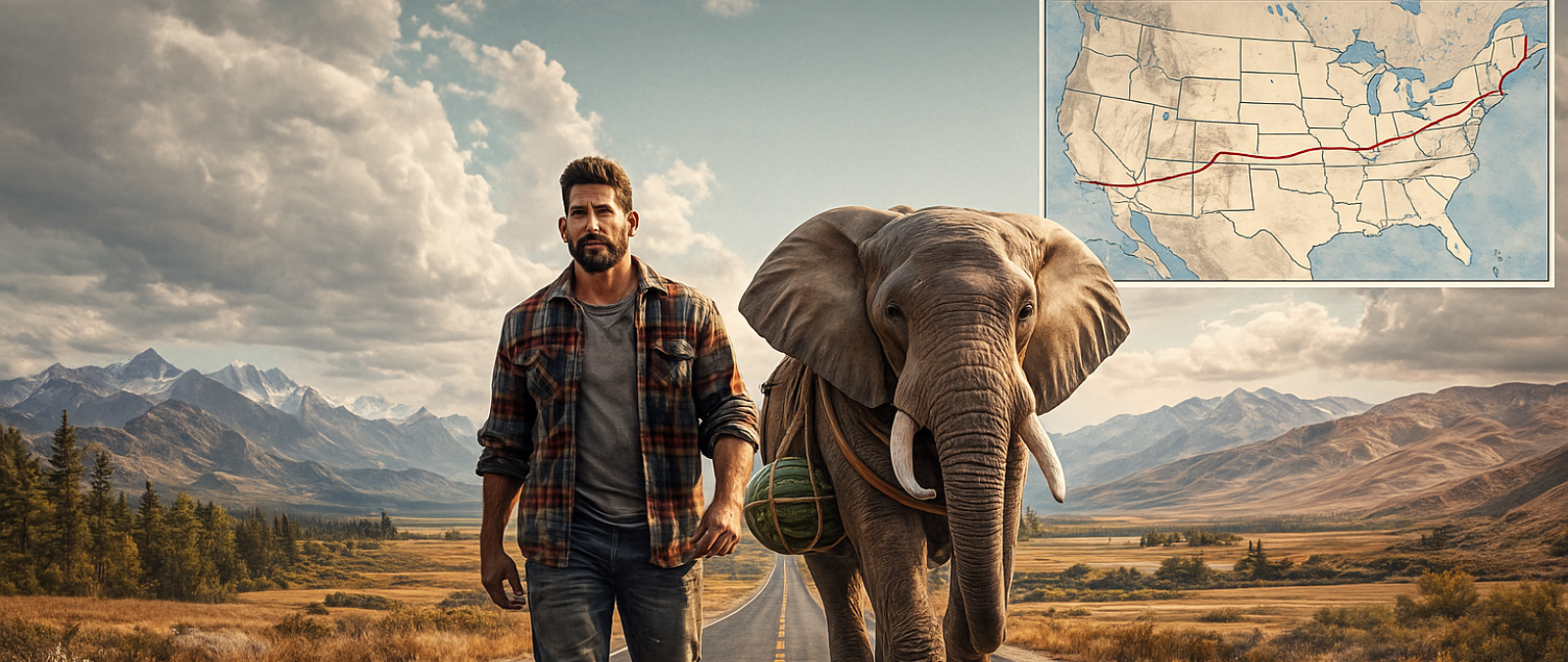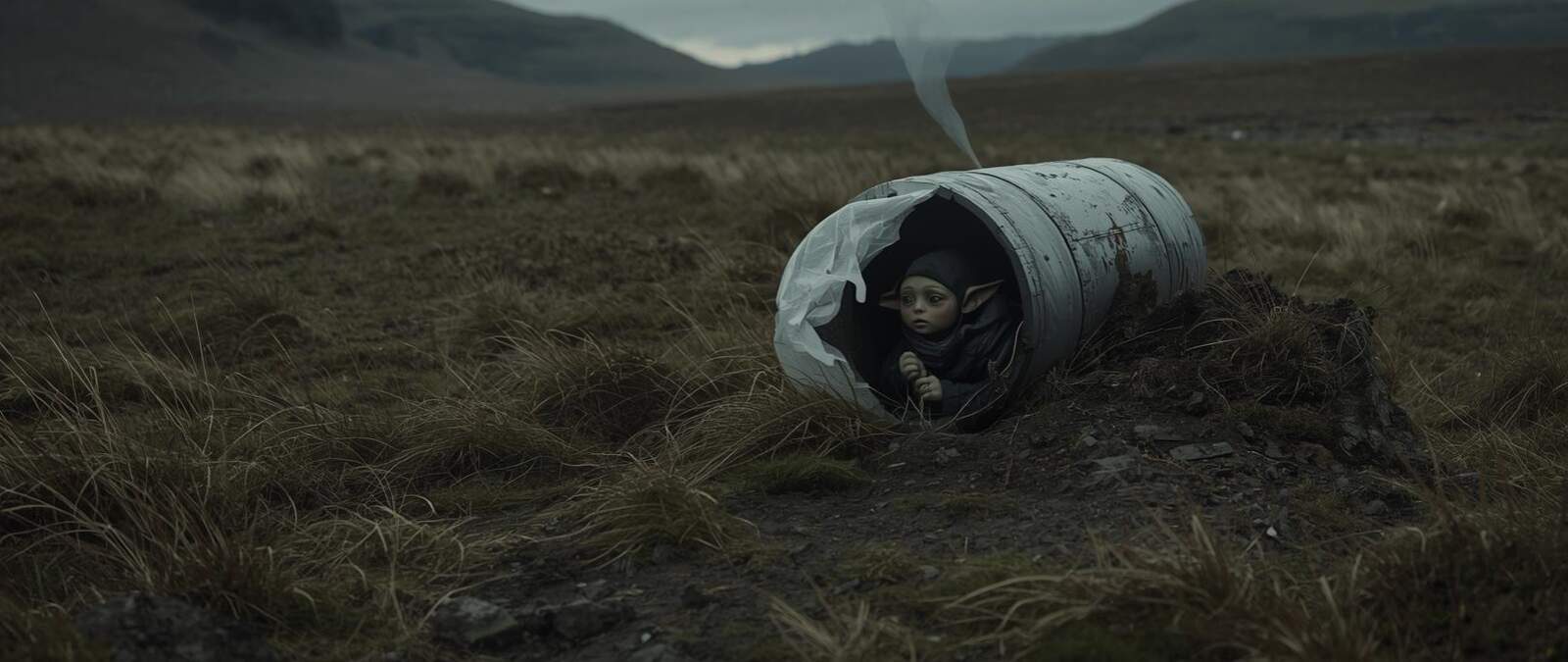The Dolphins

It was a beautiful, sunny summer Sunday. The weather was perfect, and so a twelve-year-old boy and his father went for a walk by the ocean. They sat down on a rocky outcrop and watched the vast body of water stretching far beyond the horizon, where a lively group of dolphins was playing in the waves nearby.
It was a breathtaking sight, one that would soften the heart of anyone with emotion.
“What do you think they’re whistling about, Dad?” the boy asked curiously.
“Don’t worry about that, son,” his father replied cheerfully. “They’re just fish. Silly fish.”
“But at school they taught us that dolphins are mammals, and even some of the smartest creatures on our planet,” the boy looked at his father in surprise.
The father waved his hand dismissively: “Nonsense from teachers. This—” he swept his hand across the entire ocean in a broad gesture, “—is nothing but a pasture of fish for us to catch and eat. Don’t romanticize it, son. You take after your mother,” he sighed, then added bluntly: “Fish are only good for cans and frying pans. Remember that.”
The boy turned his face away and looked back at the ocean. A young, playful dolphin was frolicking in the waves around his mother, looking happy and healthy. The sight touched the boy’s heart: I wouldn’t want to eat that little one. I wouldn’t want him on a frying pan, Dad. To me, he seems…
But his words were cut short by his father’s harsh voice. The sharp tone carried the weight of years of hard manual labor in harsh conditions, where there was no space for reflection or fancy talk: “Nonsense, boy. A dolphin would taste just fine on a pan, if it weren’t for those nature protectors, green activists, and all the rest. Remember… it’s just a fish. And we are people.”
“It’s not a fish, it’s a mammal. Like us. That’s what they taught us at school…”
“Silence!” the father barked. “A fish belongs in the water and dies on land, while man breathes air and drowns underwater. Do you understand, son? So who’s the master of creation? MAN! That’s obvious. Let a dolphin try to fight us! One underwater atomic bomb and they’d be gone, finished!” the father said proudly, thumping his chest.
The boy drooped his ears and withdrew into himself. He liked the young playful dolphin, its untamed freedom, the joy radiating from it as it pierced the waves with its sharp, dagger-like nose and then spun and whirled above and below, to the left and right of its mother. Its acrobatics and speed embodied a zest for life that people, tied down by matter and conventions, often lacked. The boy felt drawn to him, wanted to resemble him—wanted, even, to become him. To share in that freedom and joy, in the boundless games made possible by the endless waves of the ocean.
🐬***🐬
The young dolphin, whose name was Amin, still a dolphin child, frolicked happily in the waves while interesting thoughts swam through his mind. He was thinking about people. Suddenly, an older and more experienced dolphin swam up to him, and so the youngster asked, in the whistling dolphin speech—so close to extrasensory perception—about the very thing he had been pondering.
In our story—and perhaps not only in it—it is true that dolphins are the most advanced life form on Earth. Their mutual communication is so complex that humans can hardly comprehend it, because it blends many dimensions. It is a truly complex communication. Humans communicate only through words and partly through facial expressions and what we call body language. Dolphins, however, communicate with sounds (mostly high-frequency), with thought-like sonar waves that also carry emotional, taste, scent, and other sensory dimensions. It is a highly variable, creative process through which they can express their individuality completely—utterly uniquely.
For humans, this system is nearly impossible to explain. The closest concept is probably “sharing,” and dolphins possess the ability for total sharing of one another. And by their own will they choose how much of themselves to reveal to the other. It was a completely different form of communication—one that elevated them above all other living beings on Earth.
The old dolphin caught the young one’s curious question and whistled with delight. He was glad the young were thinking about matters that surrounded and transcended their wondrous, vast, and perfect aquatic world:
“Humans do not bother us, Amin. Yes, they make trouble by polluting the seas, by fishing in the wrong places, and far more than they need—but so what?” he sent the hidden sonar thought-wave straight into Amin’s mind, and continued:
“As long as everything stays within reason, we will not fight them. That is the law of nature. In nature there are more aggressive species that dominate the weaker ones. They work on a primitive basis. But that is not our way. We are the most advanced species. We stand above all others, and as such we do not acknowledge only hunting and spreading our kind, but also complexity, interconnectedness, belonging, and the vision of a single planet, which, as you know well, is a living being—our host, our nurturer, our mother. All living forms capable of existing on this planet are a community meant to live according to the laws of nature. In the waters as well as on land. Humanity will be given a chance to understand this. We dolphins have no doubt.”
“And if humanity does not understand, and poisons our home? The water, the oceans? They already do. Will we allow it?” asked young Amin, whistling with curiosity. With this question, he spun joyfully in the water, youthful energy and interest glowing from him.
The old dolphin playfully swayed his fins, and almost childishly spun in a beautiful spiral: “Then we will use this…” he whistled cheerfully, sending out a sonar wave that pushed little Amin several meters backward.
The young dolphin wasn’t afraid, for underwater, in the sea, one cannot fall.
“I want to learn that too!” the little one flicked his fins, circled his mother—who was watching with amusement as she floated gently on the waves nearby—and then swam up close to the old dolphin, gazing at him in admiration.
The elder sent a calm sonar thought, followed by a wave of wisdom and understanding: “When you’re older, you will learn it. You will learn everything. Just like every dolphin.”
Amin’s eyes sparkled with joy. Yes, as he grew, he would learn all the skills of the dolphins, for dolphins were the true rulers of the planet. And if humans misbehaved too much, it would take only a single sonar wave—sent by hundreds of dolphins, aimed at the shore—and whffft!
Human civilization would vanish as if with a wave of a magic wand. For mankind was not the most advanced species on this planet. This planet belonged to the dolphins. Of that, there was no doubt. And dolphins tolerated humanity. And when they ceased to tolerate it, they would sweep humans from the surface of the Earth, and there would be peace.
This certainty gave Amin a deep sense of safety. He flicked joyfully, spun several graceful underwater pirouettes, and headed toward the surface to leap into the fresh ocean air, to feel the bliss of warm sunlight shining on his skin for a moment.
As he leapt above the water, he caught sight, from the corner of his eye, of a boy and a man sitting on the rocky shore. Amin smiled. Oh look, humans. Land-dwellers. They came to see the beauty of the ocean. I wonder what they’re talking about? But soon, the thought bored him.
Humans were only an inferior, tolerated species. The true kings of the planet were, of course, the dolphins.
And with that reassuring thought, Amin dove back into the depths of the ocean, carried by the playful and free joy of dolphins, so natural to them, into the happy life of a dolphin child.
🐬***🐬













